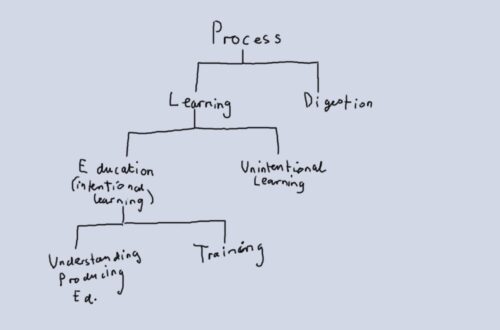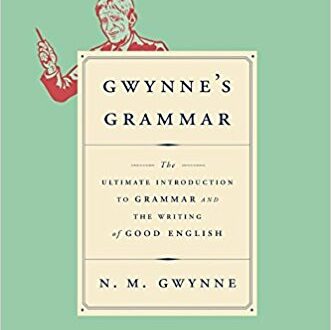Today I want to look at a postmodern approach to the problem.
Postmodernity has, for some, offered a much needed critique of modern assumptions. Whereas modern integration theories rest on modern assumptions thereby moving theology to the sidelines and secularising the remaining disciples, postmodern theories attract Christian educators due to the opportunity to move beyond the modernist hegemony. Their strategies are primarily grounded in redefining the notion of integration to suit postmodern assumptions.
The Christian faith, for James K.A Smith, is, “primarily a narrative that is embedded in the practices of Christian worship.” Smith is concerned that the integration project has been hijacked by those who see faith and learning in primarily cognitive, theoretical terms. He rightly points out that this is reductionistic and that both faith and learning, in a Christian context, are “thicker” than that. Smith’s view is that both are integrated in a narrative model of Christian identity and in the ritual practice of Christian worship. Learning, for Smith, is tied to Christian worship: “The liturgy is a pedagogy that trains us as disciples precisely by putting our bodies through a regimen for repeated practices that get hold of our heart and “aim” our love toward the kingdom of God. Before we articulate a “worldview,” we worship.”
Smith thinks that the integration project thus far has leaned too heavily on modernist assumptions. His complaint is that integration is construed as adding faith to a discipline in a supplementary way. This is because, Smith suggests, one must enter a particular discipline on modernist terms, valuing neutral, presupposition-free rationality: “The price of admission to the halls of the academy is the requirement that one leave one’s tradition and presuppositions at the door.”
Smith suggests three reasons to reject such a vision. First, we are finite human beings and are unable to obtain comprehensive knowledge. Second, we are historically, culturally situated creatures subject to tradition. Third, we are fallen, sinful creatures with a propensity to lie and misinterpret evidence. Smith thinks that, given the truth of these three premises, objectivity is not possible: “All scholarship is theory-laden and all theory is faith-laden.” Smith offers an alternative vision: “unapologetic scholarship”
The kind of scholarship that I try to advocate and practice is what we could call unapologetic Christian scholarship… This is postfoundationalist insofar as it recognizes that what counts as “evidence” or “criteria for justification” within a given discipline is relative to a paradigm of normal science which is itself undergirded by (religious) commitments… This is “unapologetic” in the sense that (a) it does not apologize for its specifically Christian foundations and (b) it does not spend its time trying to convince the field of justification of these commitments by the rules of normal science (because ultimately, [i] all scholars work from some such commitments, and [ii] neutral agreement is not possible).
Smith rejects both modern forms of realism and objectivity. If one is a realist one believes that a mind-independent reality exists and that all human beings have access to such reality. Objectivity holds that truth can be objectively known and can be held outside or apart from one’s presuppositions, prejudices and traditions. Objective knowledge of reality is paradigm free.
In contrast, Smith call his position “confessional realism.” To be a confessional realist is to hold that what is real is what is known according to one’s confessed paradigm, in this case what is grounded in the Christian tradition. Human beings have no direct access to reality in the modern sense, but see everything according to the paradigm supplied by their faith. Objectivity is not possible because everyone is paradigm bound. Smith argues that Christian education takes place in a self conscious confessional paradigm and should not attempt to climb outside itself to aim at objectivity.
For Christian integration of faith and learning what one needs is to recognize the priority of “life” over theory. Integration takes place, within Christian educational contexts, by establishing a “social imaginary,” a way of seeing the world through a Christian lens. “A social imaginary is not how we think about the world, but how we imagine the world before we ever think about it; hence the social imaginary is made up of the stuff that fuels the imagination–stories, pictures, myths, narratives.” In practical terms, for Smith, this is a matter of a life of ritual, community and narrative. It is the formation of an explicitly Christian practice that then forms the context for learning.
Smith recognizes the amelioration of education through the excessive emphasis on cognitive integration. He rightly notes the lack of reference to “life” in faith-learning discussions. Smith swings the pendulum in favor of a narrative view of education to the point that “life” is prior to cognition. This, for Smith, provides a way out for Christian education.
The cost, for Smith’s view, is objectivity and realism. On postmodern terms knowledge is obtained within particular paradigms and there is no way “out” of one’s paradigm in order to check if it corresponds to reality. Smith admits this premise and argues that Christians should be “unapologetic” about this because everyone operates the same way: all human beings interpret according to their faith, even those who say they have no faith.
I would like to suggest that Smith does not have to pay the price he pays for integration. What one can see in Smith’s argument is that prior to his confession of Christian faith is his confession of postmodern faith. Smith sees the content of Christian faith in terms of narrative and form of life shaped by the community of faith as they engage in activities supplied by the Christian tradition. This includes the communal interpretation of scripture.
On this latter point, Smith approaches scripture in a somewhat postliberal fashion. Scripture is interpreted primarily in the light of the context in which it is read. A postliberal hermeneutic will deny that there is any universal unbiased means of finding an objective meaning in the text and, instead, argues that meaning is found in the subject as he or she reads within a given community. The meaning of the text is to some degree determined by the context in which the reader reads. A postliberal hermeneutic emphasises a response to the text in life rather than the assent to time-independent truths.
Smith sees more conservative views of scripture as buying into modern assumptions. For example, the historical-critical hermeneutic assumes a modern epistemology. But why does Smith assume only two options-modern and postmodern? It seems that a good hermeneutic should not fall into either pit. For example, a grammatical-historical approach does not necessarily presuppose modernist assumptions, rather it is more pre-modern in its assumptions. A historical-grammatical hermeneutic attempts to discern the meaning of the author in his or her historical context. When applied to the Bible one assumes that the Bible is the inerrant and perspicuous Word of God.
Smith’s view of scripture is not merely one of many aspects of Smith’s proposal, but is the centerpiece. If one takes his view then the rest follows more or less. So let me attempt to summarise what Smith’s postmodern proposal is and then offer a contrasting argument to support a different view of scripture and, therefore, a different view of learning.
First, Smith’s proposal is epistemologically skeptical. We are finite human beings and are unable to obtain comprehensive knowledge. If we are unable to obtain comprehensive knowledge, then we cannot be sure we know anything since there may be something we don’t know that turns out to negate everything we do know.
Second, since we are historically, culturally situated creatures subject to tradition, human beings cannot avoid bringing to bear our conditioning onto texts written in a different historical and cultural tradition. Therefore, it is not possible to obtain the author’s meaning in the text.
Finally, since we are fallen, sinful creatures with a propensity to lie and misinterpret evidence we cannot trust our own interpretations.
Therefore, objectivity is not possible: “All scholarship is theory-laden and all theory is faith-laden.”
Let me answer each premise. First, I agree that human beings cannot obtain comprehensive knowledge, but God does obtain comprehensive knowledge. Because God has comprehensive knowledge it is not possible for God to be mistaken. Therefore God is able to design human beings that are able to come to some knowledge. (this is an important argument and I have written extensively on it – see here)
Second, while we are historically conditioned human beings it is still possible to know what another person meant in different historical settings. This is because God placed both the author and the reader in their respective historical settings. Since God inspired scripture through the author he was able to have the writer say what He wanted in a particular setting. Scripture assumes clarity across generations (Deut 6:4). Since God determined what the author would say, in his setting, and the author wrote words that suggest the transfer of his meaning from one generation to the next, it is possible to know what the author meant in our present generation.
Third, while we are fallen believers, who are recipients of the Holy Spirit, we are able to affirm the veracity of scripture. While believers misinterpret they are nonetheless able to come to true beliefs warranted by their interpretation of scripture using the grammatical-historical hermeneutic. Unbelievers, who do not have the Holy Spirit, are prone not only to misinterpret but also are unable to affirm the truth of scripture and come under its authority.
Finally, the conclusion that all scholarship is theory laden and all theory is faith laden has truth to it. What one needs to say is that there is a right theory and a right faith. One’s presuppositions should be shaped by Scripture and what the original authors meant and what God wants to say in scripture. This is a lengthy process. As one reads scripture as a new believer it is hard work, there are so many passages that grate with one’s presuppositions. But as one yields to the Spirit and allows the Word of God to gain authority over the life and thought of the reader an amazing transformation takes place. One begins to accord with the presuppositions of Scripture. This process is a process of faith – of entrusting oneself to God’s Word. And this process is the foundation for all education of Christians. The presupposition needed for the right study of anything is the truth of and trust in God’s Word.
Smith’s original concern, that faith-learning integration is dominated by an Enlightenment fueled obsession with cognitive integration is valid, but the answer lies not in postmodernism’s skepticism, but in the Bible’s authority. The Bible’s authority is not only over the mind of students but over the whole of “life.”
James K. A Smith, “Beyond Integration: Re-Narrating Christian Scholarship in Postmodernity” in Beyond Integration? ed. Ream, Pattingale and Riggs (Abilene: Abilene Christian University Press, 2012), 19-48.


